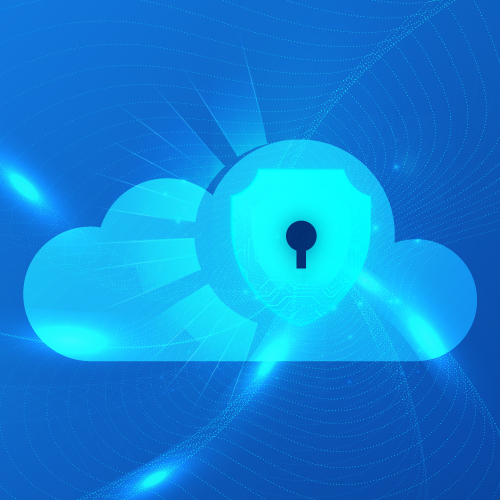Enterprises have been reluctant to move their business data from on-premises to the cloud due to data security issues and data breaches. However, with the advancement in the tech industry, organizations are now leveraging cloud migration or a cloud data security system to improve business capabilities, enhance operational efficiency, and improve customer experience without worrying about data loss during migration.
As the cloud industry is growing explosively, many cloud service providers are continually innovating, evolving, and delivering high-quality services to stand ahead of the competition. A managed service provider can implement an end-to-end cloud migration strategy to ensure successful data migration and mitigate data security system problems. This guide will focus on the questions every business owner should ask before choosing a cloud data security system.
How do they ensure the security of cloud data while migrating?
Cloud adoption has been expanding for several years as new trends take shape, enabling business owners to leverage the benefits of the cloud. A study by LogicMonitor indicates that nearly 30% of the on-premise workload will shift to the cloud by 2025.
Even though transitioning from physical servers to the cloud can improve business operations and secure data, business owners must focus on strengthening the security system to eliminate potential vulnerabilities before data migration. Here is what an experienced team will take into account to improve network security.
- Data backup and end-to-end encryption
- Monitor the data systems to identify threats in real-time
- Effective measures to mitigate the short-term vulnerabilities
- Creates a backup IT environment to run applications until the cloud migration is complete
- Compliant with data security compliance standards
What security systems does the cloud migration service provider have?
Many tech leaders are planning to move their data to the cloud; however, the security of cloud data systems remains a concern. Only a reliable and well-managed cloud data migration company can protect sensitive data from a breach with a high-level security system that includes the following:
- Identity management and secure user endpoints to reduce the risk in cloud dataflow
- Authentication security to control application and data changes
- Access control to protect sensitive business information
- Secure connections between internal data and the cloud with standardized APIs
- Sophisticated threat intelligence, extensive automation, and extended visibility
Do the cloud service providers have a well-qualified team of data security professionals?
Moving the entire data to the cloud requires expertise, knowledge, and skills to ensure no data loss or breach midway and smooth data migration. A reputable cloud service provider leverages state-of-the-art security controls and round-the-clock guards to boost technical security and continuously monitor attacks.
Data security professionals create and maintain a secure environment with due diligence to protect server data in the cloud. Inferenz data security professionals can help you remain vigilant and make the data transfer to the cloud a breeze by using its cutting-edge technologies. Read our detailed case study to know how we leverage tools to help our clients here.
What cloud security certifications does the cloud migration service provider have?
Lee James, who is the hosting provider Rackspace CTO, believes that multi-cloud environment systems are the future of cloud computing, Server space indicates. Business owners who want to switch to multi-cloud must look for a certified migration service provider to deal with data security and migration problems.
Security certifications prove that the provider legally excels in the security standards and meets the current and future cloud security requirements.
What shared responsibility model does the cloud migration service provider follow?
The business owner and the cloud service provider enter into a partnership of shared responsibility for security reasons. A cloud security and risk framework outlines which data states, security duties, and locations are in the business owners’ domain and which are in cloud service providers. The three main types of models include Software as a Service, Platform as a Service, and Infrastructure as a Service.
ALSO READ: 5 Things To Consider Before Any SQL To Snowflake Migration
Before entering into the partnership with the provider, reviewing and understanding the shared responsibility can make moving data to the cloud manageable and secure. Some of the other benefits of choosing a shared responsibility model for a data security system include the following:
- Reduces customer responsibility for the cloud dataflow
- Less management of infrastructure and reduced extra costs that stretch the budget
- Relieves operational burden for the in-house team as they can focus on other tasks
- Improves cybersecurity by reducing the risk of vulnerabilities and data breaches
- Delineating which responsibilities the cloud service providers take on to enhance the productivity of the business team
Make Digital Transformation Easy With Experts Of Inferenz
Data security in 2022 has become the main apprehension for organizations of all sizes. Performing timely backup, restoring data, and choosing the right cloud service provider can protect a business’s sensitive data and critical information.
If you want to secure the data during cloud migration, Inferenz data security professionals can help you with a well-structured migration strategy to move data smoothly from the database to the cloud data security system.













